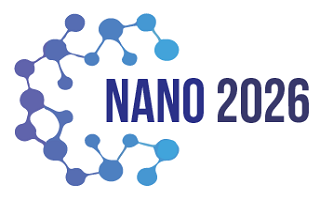3rd World Congress on
Nanotechnology
October 29-30, 2026 | Berlin, Germany

Address: Hans-Grade-Allee 5, 12529 Schonefeld b. Berlin, Germany
Nano 2026

University of Sao Paulo, Brazil
Abstract:
The treatment of brain tumors requires innovative therapeutic approaches that enhance efficacy while minimizing adverse effects. In this context, this study aimed to develop lipid nanoparticles (NPs) capable of co-encapsulating antitumor compounds to potentiate therapeutic activity against glioblastoma. The NPs were prepared by hot emulsification followed by sonication and optimized using the Box–Behnken experimental design. The final formulation was evaluated for cytotoxicity in U87MG glioblastoma cells, comparing free and encapsulated forms of the drugs, both individually and in combination. The in vitro study demonstrated that the nanocarrier containing antitumor compounds exhibited high cytotoxic activity, indicating a synergistic effect between the chemotherapeutic agent and the natural product. Additionally, a higher cellular uptake was observed for the encapsulated drugs compared to their free forms, suggesting improved internalization and intracellular action. The combined nanoformulation showed a more pronounced antitumor effect, with synergy confirmed through combination index analysis and isobologram construction. These results indicate that lipid nanoparticle encapsulation enhances drug activity, reduces the concentration required to achieve therapeutic effects, and represents a promising strategy for brain tumor treatment, with potential for improved clinical efficacy and reduced systemic toxicity.
Biography:
Franciely Rufino de Almeida Lima is a PhD student in Medicines and Cosmetics at the University of São Paulo – USP. She holds specializations in Pharmacology (UFJF), Biodiversity Drug Innovation (FIOCRUZ), Production Engineering, and Clinical Pharmacy (IBRA). She has experience in developing metallic and biodegradable Nano formulations for cancer and bacterial infections. She completed training in brain nanomedicine at the International School of Nanomedicine in Italy. She is the ambassador of the first Brazilian Nanotechnology Olympiad (ONano) and founder of the first Nanotechnology League at USP. Currently, she is a member of the Young Scientists Committee at CIFARP and the Controlled Release Society (CRS).
